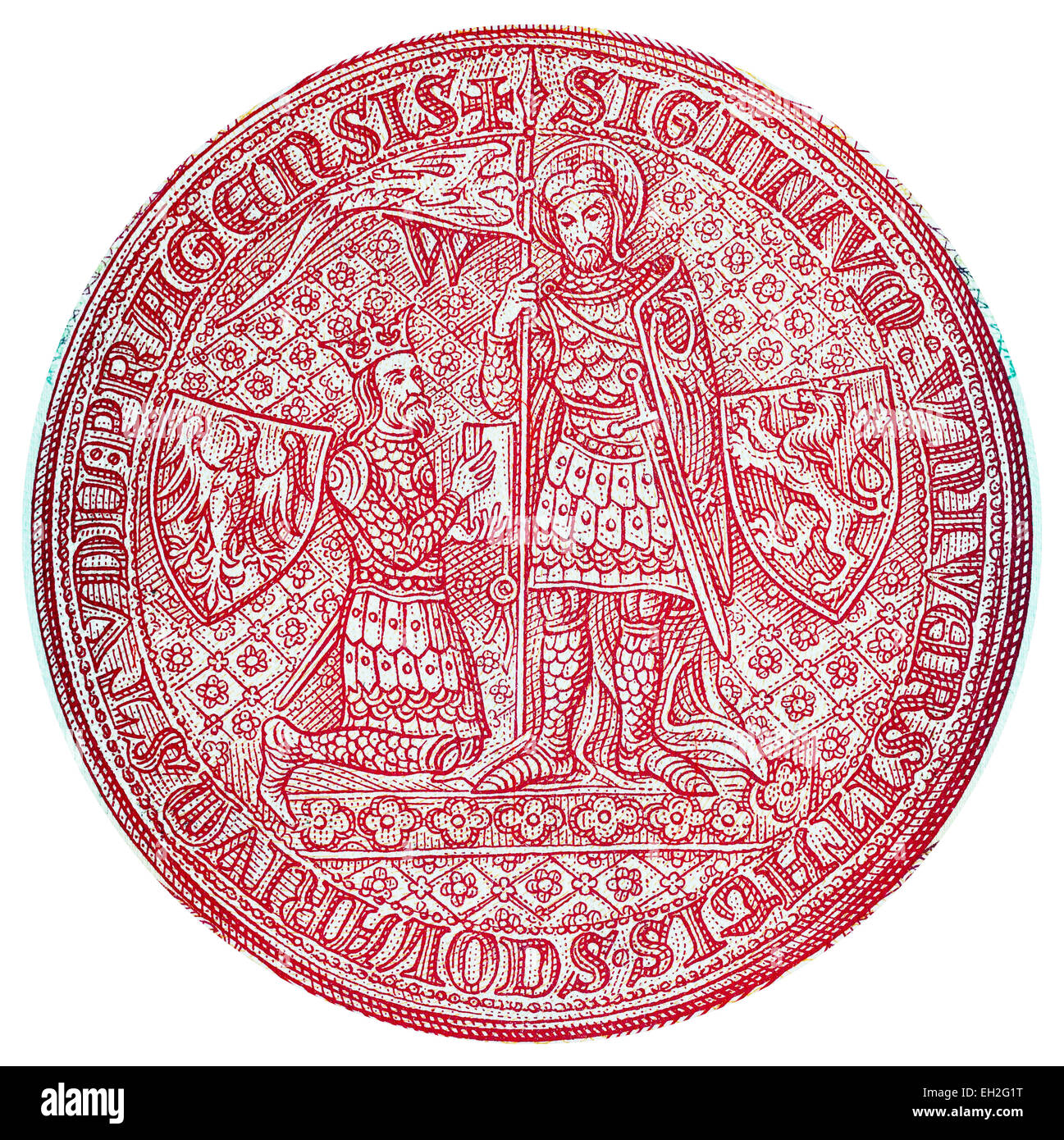England (A.D.1200’s early to middle) Historical Document- Medieval Latin, Henry III King of England -1800’s deals early- Reproduction Paper/Print.
For your consideration is a Lovely, Vintage
England (A.D.1200's early to middle) Historical Document- Medieval Latin, Henry III King of England -Vintage 1800's early- Reproduction Paper/Print. (3 item's set).
They are as follows:
1. Main Copy Paper/print.
Size: 11 x 17-1/2 inches.
2. Printed Copy Paper from Medieval Latin.
Unfolded size: 13 x 20-1/2 inches.
Folded size: 10 x 16-1/2 inches.
3. Carton Folder.
Folder size: 12 x 18 inches.
Good Condition: The pages are beginning to darken, age toned; there are some spotting, age wear and tears.
Please Note: This Paper/print is NOT in NEAR MINT or EXCELLENT Condition, but still is in Used Good condition for an age from early 1800's! –RARE, Collectible item!
Cosmetic condition is as clearly and accurately shown in the high-definition pictures provided.
Please inspect all of them carefully!!!!!
Nice and Rare piece for World History lovers!!
This Paper/print would be a great addition to a collection!!
THE HISTORY:
Henry III of England.
Henry III (1 October 1207 – 16 November 1272), also known as Henry of Winchester, was King of England, Lord of Ireland and Duke of Aquitaine from 1216 until his death.[1] The son of King John and Isabella of Angoulême, Henry assumed the throne when he was only nine in the middle of the First Barons' War. Cardinal Guala declared the war against the rebel barons to be a religious crusade and Henry's forces, led by William Marshal, defeated the rebels at the battles of Lincoln and Sandwich in 1217. Henry promised to abide by the Great Charter of 1225, which limited royal power and protected the rights of the major barons. His early rule was dominated first by Hubert de Burgh and then Peter des Roches, who reestablished royal authority after the war. In 1230 the King attempted to reconquer the provinces of France that had once belonged to his father, but the invasion was a debacle. A revolt led by William Marshal's son, Richard, broke out in 1232, ending in a peace settlement negotiated by the Church.
Following the revolt, Henry ruled England personally, rather than governing through senior ministers. He travelled less than previous monarchs, investing heavily in a handful of his favourite palaces and castles. He married Eleanor of Provence, with whom he had five children. Henry was known for his piety, holding lavish religious ceremonies and giving generously to charities; the King was particularly devoted to the figure of Edward the Confessor, whom he adopted as his patron saint. He extracted huge sums of money from the Jews in England, ultimately crippling their ability to do business, and as attitudes towards the Jews hardened, he introduced the Statute of Jewry, attempting to segregate the community. In a fresh attempt to reclaim his family's lands in France, he invaded Poitou in 1242, leading to the disastrous Battle of Taillebourg. After this, Henry relied on diplomacy, cultivating an alliance with Holy Roman Emperor Frederick II. Henry supported his brother Richard in his bid to become King of the Romans in 1256, but was unable to place his own son Edmund on the throne of Sicily, despite investing large amounts of money. He planned to go on crusade to the Levant, but was prevented from doing so by rebellions in Gascony.
By 1258, Henry's rule was increasingly unpopular, the result of the failure of his expensive foreign policies and the notoriety of his Poitevin half-brothers, the Lusignans, as well as the role of his local officials in collecting taxes and debts. A coalition of his barons, initially probably backed by Eleanor, seized power in a coup d'état and expelled the Poitevins from England, reforming the royal government through a process called the Provisions of Oxford. Henry and the baronial government enacted a peace with France in 1259, under which Henry gave up his rights to his other lands in France in return for King Louis IX of France recognising him as the rightful ruler of Gascony. The baronial regime collapsed but Henry was unable to reform a stable government and instability across England continued.
In 1263 one of the more radical barons, Simon de Montfort, seized power, resulting in the Second Barons' War. Henry persuaded Louis to support his cause and mobilised an army. The Battle of Lewes occurred in 1264, where Henry was defeated and taken prisoner. Henry's eldest son, Edward, escaped from captivity to defeat deals de Montfort at the Battle of Evesham the following year and freed his father. Henry initially enacted a harsh revenge on the remaining rebels, but was persuaded by the Church to mollify his policies through the Dictum of Kenilworth. Reconstruction was slow and Henry had to acquiesce to various measures, including further suppression of the Jews, to maintain baronial and popular support. Henry died in 1272, leaving Edward as his successor. He was buried in Westminster Abbey, which he had rebuilt in the second half of his reign, and was moved to his current tomb in 1290. Some miracles were declared after his death but he was not canonized.



